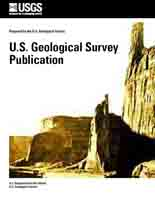Characterization of surface-water resources in the Great Basin National Park area and their susceptibility to ground-water withdrawals in adjacent valleys, White Pine County, Nevada
Links
- More information: USGS Index Page (html)
- Plate: Sir 20065099 (pdf)
- Additional Report Pieces:
- Metadata: Metadata
- Download citation as: RIS | Dublin Core
Abstract
Suggested Citation
Elliott, P.E., Beck, D.A., Prudic, D.E., 2006, Characterization of surface-water resources in the Great Basin National Park area and their susceptibility to ground-water withdrawals in adjacent valleys, White Pine County, Nevada: U.S. Geological Survey Scientific Investigations Report 2006-5099, vi, 157 p., https://doi.org/10.3133/sir20065099.
ISSN: 2328-0328 (online)
| Publication type | Report |
|---|---|
| Publication Subtype | USGS Numbered Series |
| Title | Characterization of surface-water resources in the Great Basin National Park area and their susceptibility to ground-water withdrawals in adjacent valleys, White Pine County, Nevada |
| Series title | Scientific Investigations Report |
| Series number | 2006-5099 |
| DOI | 10.3133/sir20065099 |
| Year Published | 2006 |
| Language | English |
| Publisher | U.S. Geological Survey |
| Publisher location | Reston, VA |
| Description | vi, 157 p. |


